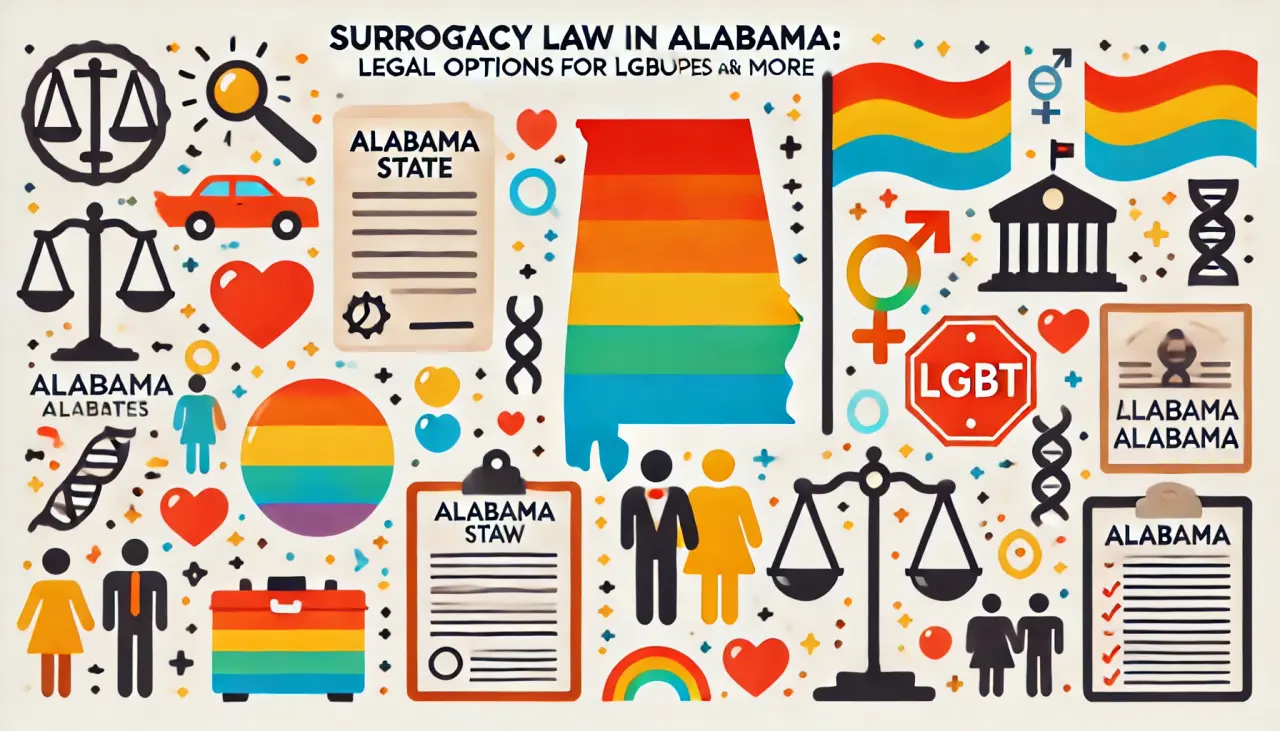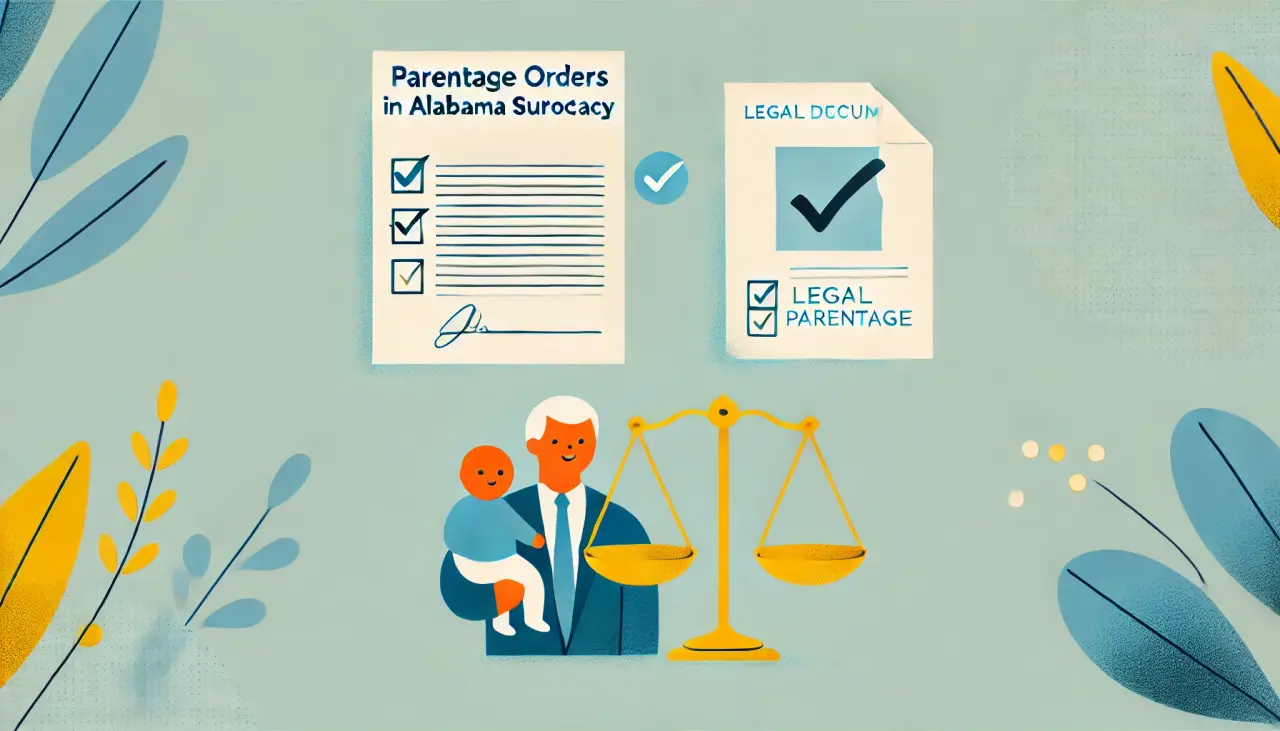Surrogacy Law in Alabama: Understanding Legal Options for LGBT Couples and More
Surrogacy has become a viable option for many families in Alabama, but understanding the state’s surrogacy laws is essential before embarking on the journey. Although Alabama does not have explicit surrogacy legislation, it remains a surrogacy-friendly state, and many intended parents have successfully completed their surrogacy journeys here. Whether you’re pursuing surrogacy or becoming a surrogate, it’s crucial to understand the legal framework. This guide will answer key questions, including “Is surrogacy legal in Alabama?”, and how surrogacy works for same-sex couples.

Is Surrogacy Legal in Alabama?
The question many prospective parents ask is, “Is surrogacy legal in Alabama?” The answer is yes—surrogacy is legal in Alabama. While the state does not have specific laws that regulate surrogacy, Alabama’s courts are generally favorable to the process. As long as surrogacy contracts comply with local regulations, intended parents and surrogates can legally engage in both commercial and altruistic surrogacy arrangements.
Key Legal Points:
- Surrogacy contracts are enforceable when drafted correctly by a local surrogacy lawyer.
- There are no laws that restrict surrogate compensation, making commercial surrogacy legal.
- Donors of eggs, sperm, or embryos are not considered legal parents if the donation is done through a medical facility.
Surrogacy for LGBT Couples in Alabama
For same-sex couples, surrogacy for LGBT couples in Alabama follows the same legal structure as for heterosexual couples. There are no specific laws that restrict LGBT couples from pursuing surrogacy in the state, and courts generally recognize surrogacy agreements as long as all legal procedures are followed.
Key Considerations for LGBT Couples:
- Married LGBT couples can obtain a pre-birth order (PBO) to secure their legal parentage before the child’s birth.
- If unmarried, the non-biological parent will need to complete a second-parent adoption after the child is born.
- Legal parentage is critical, and LGBT couples should consult with a surrogacy lawyer to ensure their parental rights are fully protected.

Surrogacy Contracts in Alabama
Even though Alabama does not regulate surrogacy through specific laws, surrogacy contracts are considered enforceable as long as they are properly drafted by legal professionals. Both intended parents and surrogates must have separate legal representation to ensure the contract protects their rights.
A typical surrogacy contract includes:
- The rights and responsibilities of both the intended parents and the surrogate.
- Financial terms, including compensation for the surrogate.
- Agreements on medical issues, such as pregnancy termination or selective reduction.
It is essential to finalize the surrogacy contract before starting the medical procedures, such as embryo transfer, as most IVF clinics require a legal contract to proceed.

Parentage Orders in Alabama Surrogacy
One of the most important legal steps in surrogacy is securing a parentage order, which establishes the intended parents as the legal parents of the child. In Alabama, courts generally recognize married intended parents as the legal guardians through a pre-birth parentage order (PBO).
Parentage Order Highlights:
- Married couples (heterosexual or LGBT) can obtain a PBO, securing their rights before birth.
- Unmarried parents or those without a genetic connection to the child may need to complete a second-parent adoption after birth to formalize their legal parentage.
Surrogacy for International Couples in Alabama
Although Alabama does not have specific regulations for international intended parents, the surrogacy process for foreign couples generally mirrors that of U.S. citizens. The key is to ensure all legal documentation is properly handled, and international parents may need additional paperwork to ensure their child can legally travel back to their home country.
Traditional Surrogacy in Alabama
Is traditional surrogacy legal in Alabama? Yes, traditional surrogacy—where the surrogate mother is biologically related to the child—is legal. However, due to the emotional and legal complexities involved, traditional surrogacy is often discouraged in favor of gestational surrogacy, where the surrogate has no genetic link to the baby.
Conclusion: Navigating Surrogacy in Alabama
Understanding surrogacy law in Alabama is crucial for both intended parents and surrogates. While Alabama lacks specific surrogacy laws, the state’s courts generally support surrogacy arrangements, including those for LGBT couples. Whether you’re considering surrogacy for the first time or exploring legal surrogacy options as an international or LGBT couple, working with an experienced lawyer and agency is the key to a successful journey.